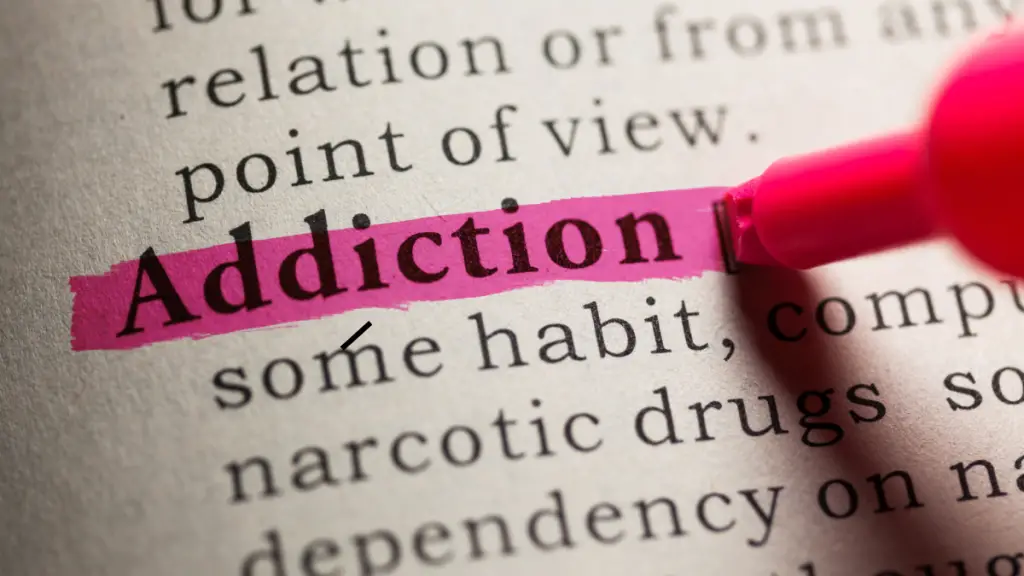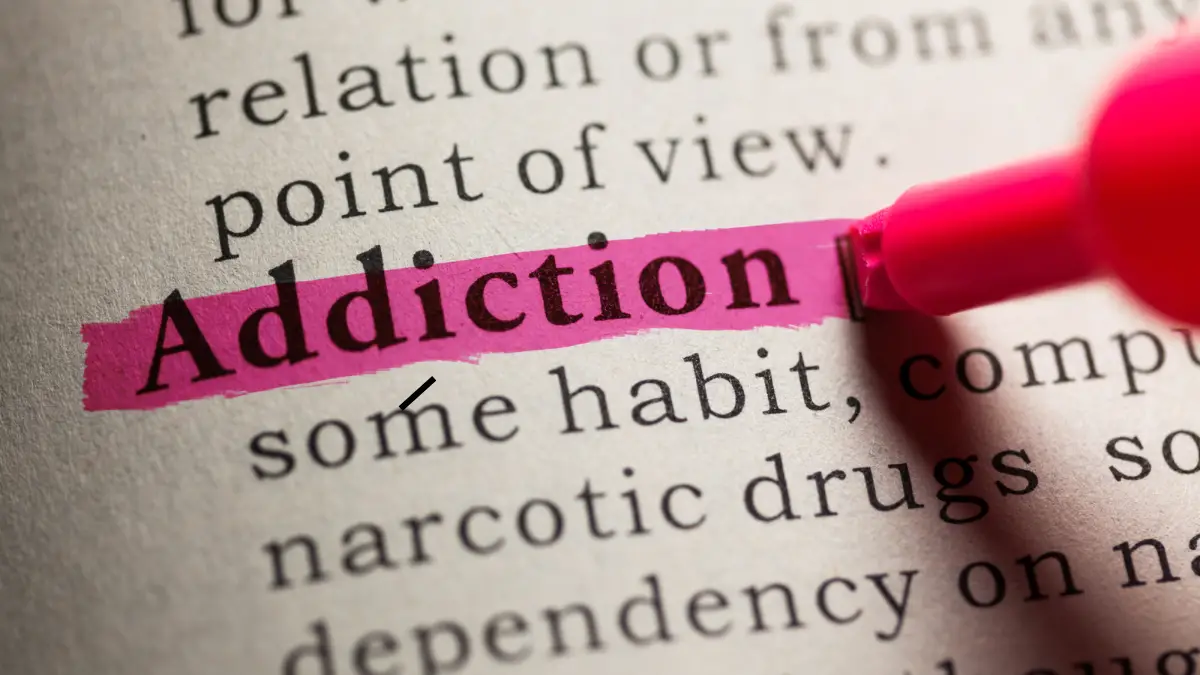Addiction is a silent epidemic that has plagued societies worldwide, cutting across all demographics, professions, and social classes. While it may often start as a harmless habit, addiction evolves into a complex disease that disrupts every aspect of life — physical health, mental well-being, relationships, academics, finances, and social life.
In Nigeria, addiction has become a pressing issue, affecting people in diverse ways, from substance abuse to behavioral dependencies like gambling, excessive smartphone use, and even cryptocurrency trading. Thankfully, recovery is possible. This article delves deep into the types of addiction, their effects, and practical steps to combat them, with real-life examples of Nigerian celebrities who triumphed over their struggles.
What is Addiction?
Addiction is a chronic condition where individuals compulsively engage in certain behaviors or use substances, even when they know it has harmful consequences. It is characterized by the inability to control cravings and the development of dependency, leading to physical, emotional, and psychological challenges.
Key Characteristics of Addiction
1. Loss of Control: The inability to stop or moderate usage or behavior.
2. Tolerance Development: Higher doses or increased engagement are needed to achieve satisfaction.
3. Withdrawal Symptoms: Experiencing discomfort when the substance or behavior is reduced or stopped.
4. Neglect of Responsibilities: Ignoring family, academic, or professional duties in favor of the addiction.

Types of Addiction
Addiction can be categorized broadly into two forms: substance addiction and behavioral addiction.
1. Substance Addiction
Substance addiction involves dependency on drugs or alcohol. Below are the most common forms in Nigeria:
Alcohol Addiction
Alcohol abuse remains one of the most common forms of addiction in Nigeria. While it is often seen as socially acceptable, excessive consumption leads to dependency, liver damage, impaired judgment, and family breakdown.
Drug Addiction
Substance abuse in Nigeria is increasingly becoming a major public health issue. Popular substances include:
-Pentazocine: An opioid prescribed for pain relief but often abused for its euphoric effects.
– Heroin: A dangerous drug known for its high dependency rate and life-threatening withdrawal symptoms.
– Cocaine: Often glamorized in certain social circles, cocaine leads to severe mental and physical health issues.
– Indian Hemp (Cannabis): Commonly referred to as “igbo” in Nigeria, cannabis abuse can cause paranoia, psychosis, and cognitive impairment.
– Cigarettes (Nicotine): Smoking is a widespread addiction that contributes to cancer, heart disease, and respiratory problems.
2. Behavioral Addiction
Behavioral addiction occurs when individuals compulsively engage in activities despite adverse outcomes.
Gambling
Betting platforms and gambling centers have proliferated across Nigeria, leading many to financial ruin and broken relationships.
Crypto Trading
As cryptocurrency gains popularity in Nigeria, some individuals develop an unhealthy obsession with trading, causing emotional distress and significant financial losses.
Sexual Addiction
Uncontrolled sexual urges can disrupt personal relationships, career progression, and mental stability.
Smartphone and Gaming Addiction
The overuse of gadgets, particularly among the youth, affects academic performance, social interaction, and physical health.
Relationship Addiction
Obsessive dependence on romantic partners often leads to emotional abuse, loss of identity, and toxic behaviors.
Effects of Addiction
Addiction does not only affect the individual but also their family, community, and society at large. Below are the most common areas impacted by addiction:
1. Physical and Mental Health
– Physical Health: Prolonged substance abuse damages vital organs such as the liver, kidneys, and lungs. Behavioral addictions may lead to sedentary lifestyles, obesity, and sleep disorders.
– Mental Health: Addiction often coexists with depression, anxiety, and suicidal tendencies. For instance, prolonged use of hard drugs like heroin and cocaine can lead to severe mental health challenges, including psychosis.
2. Academics
Addiction disrupts concentration, memory, and the ability to meet academic responsibilities. Students addicted to gaming or substance abuse often skip classes and fail exams, leading to prolonged years in school.
3. Finances
Addictions like gambling, crypto trading, and substance abuse drain finances. Many addicts find themselves in debt, leading to poverty and financial dependency on others.
4. Social Life and Relationships
Addiction isolates individuals from loved ones, leading to broken families and friendships. Parents battling addiction often neglect their children, creating a cycle of trauma and dysfunction.
The Menace of Addiction in Nigeria
Addiction poses a significant menace to Nigerian society. Beyond personal struggles, it contributes to increased crime rates, unemployment, broken homes, and overstretched healthcare systems.
Crime and Violence
Substance addiction often drives individuals to theft, drug trafficking, and violent crimes. Domestic violence, frequently fueled by alcohol or drug abuse, is another major issue.
Economic Losses
The financial burden of addiction in Nigeria is staggering. Billions are lost annually in healthcare costs, lost productivity, and law enforcement efforts.
How to Combat Addiction
Overcoming addiction requires a multifaceted approach. Here are six practical steps to defeat addiction:
1. Acknowledge the Problem
The first step to recovery is acceptance. Denial prolongs addiction, while self-awareness opens the door to change.
2. Seek Professional Help
– Counseling and Therapy: Cognitive Behavioral Therapy (CBT) is effective for addressing negative thought patterns.
– Rehabilitation Centers: These provide detox programs and structured environments for recovery.
3. Build a Strong Support Network
– Family Support: Families play a crucial role by offering unconditional love, setting boundaries, and encouraging treatment.
– Peer Groups: Joining support groups like Alcoholics Anonymous (AA) creates a sense of community and shared understanding.
4. Turn to Faith and Spirituality
Faith offers hope and discipline. Religious practices like prayer, meditation, and mentorship from spiritual leaders can guide addicts toward recovery.
5. Replace Harmful Habits
Channel energy into positive activities such as exercising, volunteering, or pursuing creative hobbies.
6. Advocate and Share
Sharing recovery stories inspires others to seek help. Advocacy efforts also reduce stigma and promote awareness.
Examples of Nigerian Celebrities Who Overcame Addiction
Several Nigerian celebrities have battled addiction and emerged stronger, using their experiences to inspire others. Their journeys highlight the power of determination, professional help, and support systems.
1. Terry G:
The “Akpako Master” openly shared his struggles with hard drugs and alcohol, admitting how these habits nearly ruined his career. Through discipline and focus, he turned his life around and continues to thrive.
2. Tonto Dikeh:
The actress has spoken candidly about her battle with alcohol addiction, which affected her relationships and mental health. Therapy and spiritual growth helped her break free from the cycle, and she now advocates for mental health awareness.
3. Majek Fashek:
The late reggae icon struggled with substance abuse for years, which derailed his career and personal life. Despite his challenges, he sought help through rehabilitation programs and used his platform to warn others about the dangers of addiction.
4. Toyin Abraham:
The actress once battled behavioral addictions, including gambling, which caused her significant setbacks. Therapy and a focus on spirituality helped her regain control of her life, making her one of Nollywood’s most successful actresses today.
5. Basketmouth:
The comedian revealed that family support helped him overcome the temptation of alcohol during a tough phase. His discipline and commitment to his craft kept him grounded.
6. Chidinma Ekile:
The gospel artist transformed her life through faith, moving away from destructive behaviors and dedicating her career to inspiring others.
7. 2Baba (Innocent Idibia):
The music icon has spoken about the challenges of maintaining a healthy lifestyle in an industry filled with temptations. By staying focused on his music and philanthropy, 2Baba has remained a role model for resilience.
Conclusion
Addiction is a complex issue, but it is not insurmountable. The inspiring stories of Nigerian celebrities like Tonto Dikeh, Terry G, and Majek Fashek remind us that recovery is possible with the right mindset, support systems, and professional help.
While the journey to recovery may be long and challenging, the rewards — improved health, restored relationships, and renewed purpose — make it worthwhile. As a society, we must work to reduce the stigma around addiction, advocate for better treatment options, and foster an environment where recovery is supported.
If you or someone you know is battling addiction, remember: help is available, and change is possible. Take the first step today, and let the stories of others inspire your journey to freedom.







